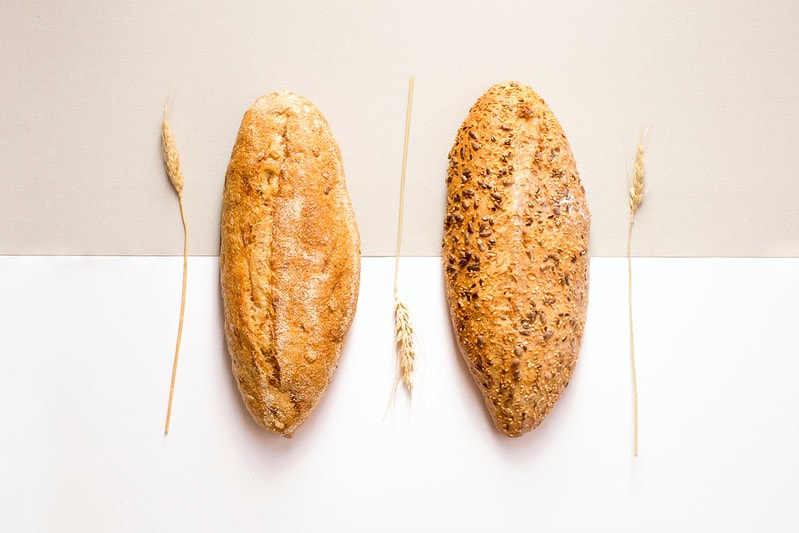|
Harvests are linked with God's feasts. In ancient Israel, before the yearly summer wheat harvest began, the people of God would gather in Jerusalem to celebrate Shavuot (The Feast of Weeks). It marks the beginning of the great wheat harvest. Before the harvest actually took place, the Jews would go out into their fields and pick the best of the crop to bring as an offering to the Lord at the Temple. They used their initial harvest to make two loaves of bread that would be used as a first fruits offering or Bikoreem. Obviously, these loaves contained leaven, signifying sin. It is thought that two loaves could represent the two houses of God (Judah and Ephraim) who both fall short of the glory of the Lord. They could also stand for Jew and Gentile or the Old and New Testament. Either way, they were used as a wave offering at the Temple.
Shavuot also became a celebration of the giving of Torah. It was during this period that the children of Israel would have been at Mt. Sinai where Moses received the two tablets containing the Ten Commandments and other laws. God had commanded the Jews to count seven full weeks from the second day of Passover to determine the exact day when they would bring Him an offering of first fruits (the new grain). (Leviticus 23:15-21) After celebrating, all the people would go out to the fields and reap their great summer harvest. Is it any wonder that God chose this festival as the time when he would pour out His Spirit on the disciples and those gathered with them in the Upper Room? The church calls this day Pentecost (meaning 50 days). At the Pentecost celebration 2,000 years ago, God was offering the first fruits of the harvest to come. He was giving a demonstration of the spiritual empowerment for those who became part of the Kingdom of God. Three thousand souls were added to the ranks of Christianity that day. It was a mighty beginning! In some circles, this day is designated as the day that the Church became the Bride of Christ. Hebrew tradition encourages the groom to bring a gift to the bride. On this day, our bridegroom, Jesus, gave to His bride, the Church, the gift of the Holy Spirit. It is only the Spirit-filled Believer that is able to go out and fulfill the commission they are given to bring life to the lost. Here are some interesting facts to consider that make this year's celebration of Pentecost particularly exciting. In Song of Solomon 8:4 the bride says, "Daughters of Jerusalem, I charge you..." I learned from Rabbi Jonathan Cahn that the word "charge" in Hebrew is "shaba." Shavuot comes from the root word shaba. Therefore, Pentecost could be called "the day of charging." We are charged to live a life of commitment to God by His Spirit. He gave us the power and authority to live an anointed life of joy, praise, and victory that impacts everyone around us. I believe that the glory of God is magnified during times of the feasts when communities gather to glorify Him and remember what He has done. There are seasonal portals opened to the heavens where the supernatural activity of God is increased. We are called to recognize God's special seasons by setting ourselves apart to worship Him and to advance His Kingdom. I am anticipating a breakthrough. Every seven years God commands His people to rest and watch Him pour out provision and revelation in abundance. This is called the Shmita year, and we are currently in that year. In addition, both Shavuot and Pentecost fall on the same day. This rarely happens—usually only every ten years. Also, look at the year we are in. It is 2022! Two is the number of agreement, one accord, and union (as in marriage). This is a year of the double portion. Let us not miss our appointment to meet with the Lord. These "kairos" or opportune moments are opportunities to bring heaven to earth. This is our time to advance the harvest as we welcome revival to the earth. |
Joan E. MathiasCategories
All
Archives
July 2024
|

 RSS Feed
RSS Feed